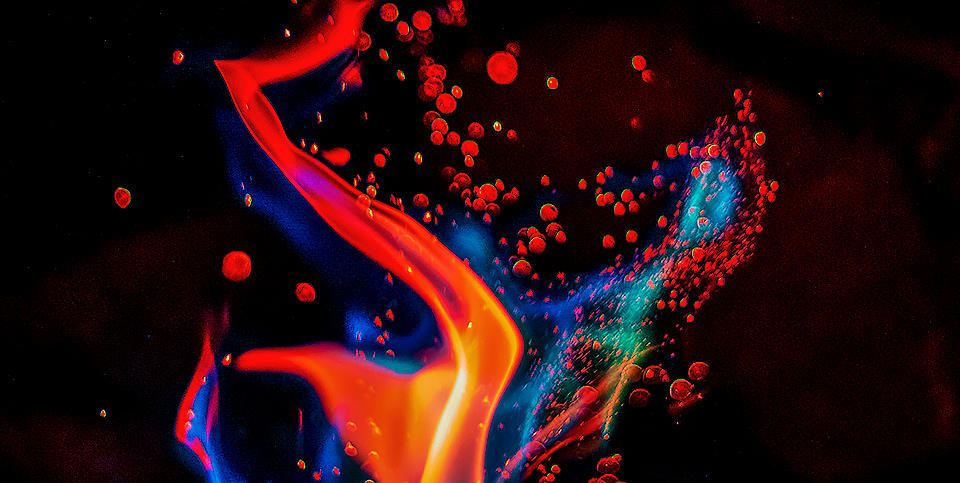
We’re often told that inflammation is dangerous, but we often aren’t told exactly why.
What is this mysterious process that, we’re told, can cause so much mischief in our bodies?
The word “inflammation” comes from a Latin root word, flamma, that means “flame.” Inflammation in the body is a fiery reaction that can take acute or chronic forms.

When your body encounters harmful agents such as viruses, bacteria, or toxic chemicals, or if it suffers an injury, the immune system sends out its first responders in the form of inflammatory cells and cytokines (substances that stimulate more inflammatory cells) to initiate an inflammatory response that traps the bacteria or other offending agents and initiates healing of injured tissue. The result may be heat, pain, swelling, bruising, or redness.
Inflammation only becomes a problem when the body continues to send inflammatory cells in the absence of any acute injury. That’s when the trouble starts. The same inflammatory cells that were formerly helpful become harmful when they outstay their welcome and begin attacking and damaging healthy tissues.
This is the “chronic inflammation” we hear so much about, and that underlies so many diseases.
The signs of chronic inflammation include joint pain or stiffness, fatigue, fever of unknown origin, digestive distress, skin rashes, and chest and abdominal pain.
Inflammation is a common factor in diseases as diverse as cancer, cardiovascular disease, diabetes, asthma, Alzheimer’s, and autoimmune diseases such as lupus and rheumatoid arthritis.
Chronic inflammation can have a variety of causes. In addition to acute inflammation gone wild, it can result from exposure to environmental toxins or it can be caused by allergies, autoimmunity, or lifestyle factors such as chronic stress, smoking, or consuming alcohol.
- Sedentary or stressful lifestyles and unhealthy food choices stoke the fires of inflammation, whereas healthy foods and lifestyle choices quell the fires.
- Obesity contributes to inflammation, and lack of exercise, or too much high-intensity exercise, can create inflammatory problems.
- Dietary substances that can promote inflammation include sugar, refined carbohydrates, fried foods, charred foods, nitrates found in cured meats, refined oils, trans fats, non-organic and GMO foods, and food additives.
- People with arthritic conditions often feel better when they eliminate foods from the nightshade family (tomatoes, potatoes, eggplants and peppers) and reduce their consumption of sugar and salt.
- Avoiding gluten and dairy is helpful in autoimmune conditions such as Hashimoto’s thyroiditis and inflammatory bowel disease.
- Identifying food sensitivities and eliminating the offending foods from our diet is almost always necessary in treating inflammatory skin conditions.
Just as avoiding certain foods can help eliminate triggers of inflammation, certain foods and supplements can help relieve inflammation.
- Green tea, fatty wild fish, broccoli, avocados, mushrooms, dark chocolate, blueberries and olive oil are all anti-inflammatory. Spices such as ginger and turmeric quell inflammation.
- Supplements such as resveratrol (found in grapes, blueberries, red wine, and dark chocolate), Vitamin D, and Vitamin C are anti-inflammatory, as are omega-3 fatty acids.
- B12 and folic acid decrease inflammation in additional inflammatory pathways.
- Botanical preparations of boswellin (Indian Frankincense) and curcumin (the active component of turmeric) have proven particularly useful, as has EGCG (epigallo catechin gallate, an active component of green tea).
- Proteolytic enzymes such as high-potency bromelain, taken between meals, decrease pain and inflammation.
There are two clear approaches to managing inflammation: we can merely try to suppress the pain, or we can address the problem at its roots.
The second approach, lifestyle management and using natural products, emphasizes preventing inflammation and putting out the smoldering fires of inflammation that are causing the pain.
For information about the services we offer at Pacific Naturopathic, please give us a call at 650-961-1660, use the convenient Contact Form to get in touch, or follow the link to: Consultations – Pacific Naturopathic. Thank you!
